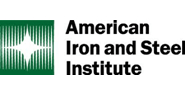Government/Policy

February 3, 2022
AISI: COMPETES Act Provisions to Counter Unfair Chinese Trade
Written by Tim Triplett
The American Iron and Steel Institute sent a letter to House members Wednesday urging them to support the America COMPETES Act of 2022, which aims to enhance U.S. competitiveness to counter alleged nonmarket policies and practices by China.
![]() The legislation will strengthen the U.S. trade remedy laws by making more tools available to obtain timely relief against repeat offenders and by addressing the growing problem of cross-border subsidization. Case in point: China’s Belt and Road Initiative, which subsidizes steel capacity and production beyond its borders. These and other provisions in the bill will improve the ability of the U.S. government to enforce antidumping and countervailing duty laws and will ensure the U.S. trade laws remain an effective tool for American producers and workers, AISI said in its letter.
The legislation will strengthen the U.S. trade remedy laws by making more tools available to obtain timely relief against repeat offenders and by addressing the growing problem of cross-border subsidization. Case in point: China’s Belt and Road Initiative, which subsidizes steel capacity and production beyond its borders. These and other provisions in the bill will improve the ability of the U.S. government to enforce antidumping and countervailing duty laws and will ensure the U.S. trade laws remain an effective tool for American producers and workers, AISI said in its letter.
Included in this legislation is the Eliminating Global Market Distortions to Protect American Jobs Act, also known as the Leveling the Playing Field Act 2.0, which was originally introduced by Representatives Terri Sewell (D-AL) and Bill Johnson (R-OH) as a standalone bill last fall.
“The American steel industry has faced repeated surges of dumped and subsidized steel imports into the U.S. market. In response, domestic steelmakers have successfully sought relief under the U.S. trade remedy laws, only to face new surges in imports of the same product from other countries not covered by the original remedy,” AISI President and CEO Kevin Dempsey said. “As China and other export-oriented economies attempt to evade and circumvent our trade remedy system, it is critical that Congress take action to address these challenges.”
In comments to Steel Market Update, Dempsey cited three examples of how the language in the new bill can improve current AD/CVD rules.
One proposal is designed to address repeat offenders. Often the U.S. industry wins relief from one set of countries found to be dumping certain products only to see the same exports begin shipping from other countries. Rather than spending another year and millions of dollars to file another trade case from scratch, provisions in the new law would allow for a successive follow-on investigation that builds on the prior case and the ITC’s injury determination.
“In shorthand, it’s about dealing with country hopping. It’s designed to make it a little faster when you have to bring repeated cases as unfair imports bounce from one set of countries to another,” he said.
Another provision would address cross-border subsidies, which have become more of an issue as China has pursued its Belt Road Initiative to expand its influence around the globe. Typically a government subsidizes an industry within its own borders. China is now even subsidizing production by Chinese enterprises in other countries, such as a stainless steel mill recently built in Indonesia, AISI claims. “We think it’s appropriate to make a CVD case against the steel from Indonesia and, if you can prove it, to also offset the subsidies coming from China. This is to adjust the CVD law to address an issue that, quite frankly, no one thought of when it was originally written,” Dempsey said.
A third provision would impose statutory deadlines on anticircumvention inquiries: namely, to speed up cases involving countries trying to evade U.S. countervailing duties by transshipping products with only minor modifications.
Further measures in the COMPETES Act are designed to address other urgent issues. Among them is $45 billion in grants and loans to improve the nation’s supply chains and $52 billion to boost semiconductor production in the U.S.
The steel-related initiatives in the bill have large bipartisan support, Dempsey said, unlike other aspects currently under debate in the House. “Our provision is less controversial. Unfortunately, the vote on the overall America COMPETES Act is shaping up to be largely along party lines. That is what happens with almost every bill these days.”
By Tim Triplett, Tim@SteelMarketUpdate.com







